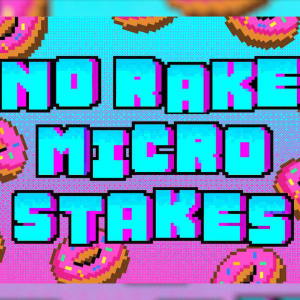Learning how to size your bets correctly will set you on the path to crushing your opponents. Poker is all about winning the most when you have the best hand and losing the least with the worst hand.
Targeting weak players is the most important point of this discussion. You simply win most of your profit from them and only spend time passing money to and from with the other regs at your table.
How to Adjust
Pre Flop:
As every hand starts with a pre flop round this is the best place to begin. In 2021 a 2.2 big blind open raise has become the standard by good players. The most you ever see a decent player raise to is 2.4 big blinds.
Back in the day when everybody was still learning, during the poker boom, 3-4 big blinds was perfectly normal. What people didn’t understand back then was that by making the pot bigger without any other information you decrease the stack to pot ratio and therefore reduce your skill edge.
A skilled player should always favour deeper stacks as they give more room to be creative and scope to outplay weaker players.
There are two simple steps for improving players. First, look for the weakest players at the table. If there are one or more - hopefully in the blinds as you will have position on them post flop - you should increase your open raise size to play a bigger pot with premium hands.
You can also look to expand your opening range very slightly to increase the chances of playing a heads up pot with a weak player.
The second step is to check for players who three-bet aggressively. If you are playing a middling hand and still want to target a weak player you can reduce your open raise size to minimise the loss when you are forced to fold.
These adjustments are microscopic but every hand you play has a pre flop stage and the extra profit accumulates extremely fast.
Three-bet sizes have also changed over the years. The old standard used to be x3 the raise in position and x4 the raise out of position.
The reason for the bigger three-bet out of position is to negate the positional disadvantage. Of course, this is contradictory to the theory that you want to keep the stacks as deep as possible but you must still adjust the strategy to account for position. Position is king.
Standard sizings now run something like x2.6 in position and x3.3 out of position.
Again you must be prepared to adjust based on your hand and opponent. Don’t worry about giving your hand strength away by making a larger raise with a premium hand, players will still be torn between thinking you are making a bigger sizing with a bluff hand and milking them with a small size when holding a premium.
Post Flop:
Again you must look to increase bet sizing when up against a weak player with a strong hand. The extra profit is what separates the mediocre regs from those with the biggest win rates.Weak players are generally not concerned with what bet size they are facing, they are more interested in how they hit the board and what their backdoor draws are. Not extracting the maximum value with a large sizing is criminal.
This also applies to the other regs. Also increase your sizing with strong hands because often they will call, feeling you are trying to buy the pot or have some sort of draw.
The overbetting strategy is another key area that can turbo boost your win rate. Most usually used on the turn or river when your opponent has already shown they have at least some piece of the board.
Betting 150% of the pot on the turn has become a solver-type strategy when in position used by many regs. The added value you get from this bet size is insane compared to trying to milk your opponent with a standard bet size.
A top tip for when you are overbet bluffing is to choose combos that block your opponent’s strongest possible holdings.


